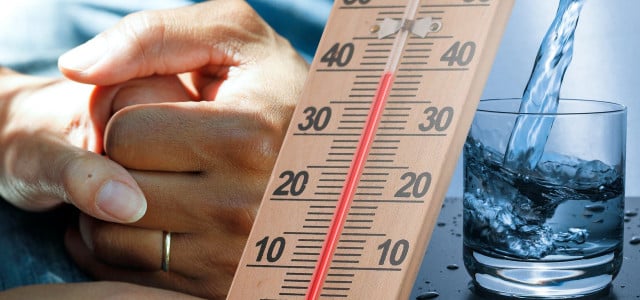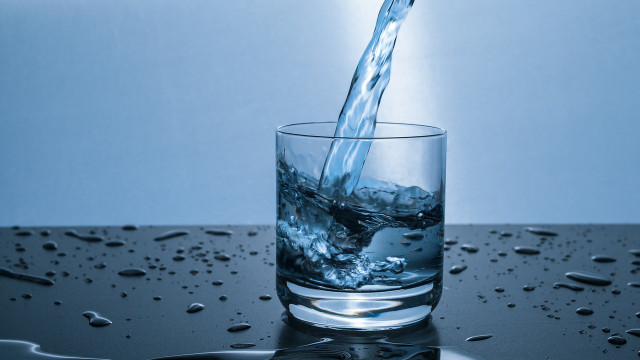
For some, it is the height of summer feelings. For others, temperatures above 30 degrees are pure torture. And sometimes even dangerous. The risk of death increases at temperatures as low as 30 degrees Celsius. We explain what you absolutely have to look out for in high summer temperatures and which groups of people you should look after.
It is currently very hot in some regions of Germany, with temperatures sometimes reaching 30 degrees. While some people are cheering and enjoying the hot summer days, others are struggling – even causing serious health problems. Extreme heat puts a strain on the lungs, heart and psyche – and can be a serious danger. Taking certain medications can also make you more susceptible to heat-related health problems.
Heat can be dangerous
Federal and state medical associations regularly hold a day of action to draw attention to the health risks posed by heat. They pointed out that, according to figures from the Robert Koch Institute, there were 3,200 heat-related deaths in Germany last year alone. According to the RKI, this ranges from deaths from heat stroke to more complex constellations, for example in people with previous cardiovascular or lung diseases.
Read more: Heatwaves: How hot is too hot for humans?
Heatwave: Who is particularly at risk?
People over 65 and people with chronic pre-existing conditions are particularly affected by the effects of the heatwave – especially if they do not drink enough. At high temperatures, the risk of falls, dehydration, confusion and circulatory problems, including cardiac arrest, is increased.
The body protects itself from high outside temperatures through “evaporative cooling”: This occurs when sweat evaporates on the skin in hot weather, cooling it down. However, this protective mechanism can be significantly limited in older people. And medication can also help someone sweat less than necessary. If cooling down through sweating is no longer possible, there is a risk of heat build-up: blood vessels in the arms and legs expand and blood pressure drops. The reduced blood flow to the brain can lead to unconsciousness. If the entire body overheats – the temperature can then rise to over 40 degrees within a short period of time – there is also a risk of brain swelling. Heat stroke like this can also be fatal.
Infants and young children are also at risk: they are less able to adapt to high temperatures than adults, their sweat production is lower and their skin surface is larger in relation to their body weight.
In addition to the elderly, people with pre-existing medical conditions, pregnant women, infants and children, the homeless and people who work outdoors – such as construction workers – are among the groups particularly at risk, according to the State Medical Association.
How dangerous are the hot days?
When the temperature reaches 30 degrees Celsius, we speak of a hot day. During a heat wave, the temperature is over 30 degrees during the day for several days, and the temperature does not drop below 20 degrees at night. If the body cannot recover sufficiently at night, heat-related stress increases and dangerous heat build-up or life-threatening heat stroke can occur. It is particularly dangerous when the outside temperature exceeds the body temperature (of around 37 degrees Celsius). The body can then no longer release the heat to the outside.
Sufficient fluids for seniors and children
Water is the be-all and end-all in hot weather – this applies to young and old alike. Older people, however, have to pay more attention to their fluid balance than younger people, because the risk of dehydration increases with age. The causes lie in insufficient fluid intake and possibly greater fluid loss. As we get older, the feeling of thirst often decreases and we drink less.

You should drink at least two liters of water a day. It is best to drink a glass of water every hour – even if you are not thirsty, according to the recommendation of the Federal Environment Agency in its heat etiquette. “Recommended drinks in hot weather: tap water, mineral water, chilled herbal tea with no added sugar, tea with mint and lemon. Important: do not drink ice cold!”
It can be helpful to place several glasses of water in frequently used places in the home, for example next to the refrigerator, in the hallway and in the bathroom. The NRW consumer advice center recommends drinking a few sips every fifteen minutes or a glass every two hours.
Heat schedule: basic rules for hot days
Everyone should protect themselves from the heat – no matter how old they are:
- Keep rooms cool, only ventilate early in the morning and at night. Keep windows closed and blinds down during the day.
- Drink plenty of water and eat salty foods, because when you sweat you lose minerals. Eating the right things on hot days can help us to tolerate the heat better.
- Limit outdoor activities to the cooler morning and evening hours. Children should play in the shade.
-
Never leave children and dogs unattended in the car.
- Check skin temperature regularly in infants, small children and the elderly and cool with damp cloths if necessary.
This is also good: rub the body with a cool, damp cloth, spray it with water or apply wet compresses directly to the arms, legs or neck. Cold foot and hand baths stimulate circulation.
Weakness, fever, severe headaches, confusion, dizziness, nausea and muscle cramps are warning signs. You should take those affected to a cool place, cool them with wet towels, raise their legs, give them something to drink and call the doctor.
Here you will find tips and home remedies that help with circulatory problems.
With material from dpa
Read more on Techzle\.com:
- Sleeping in the heat: 12 common mistakes that make you sleep worse
- 7 common mistakes you should avoid in hot weather
- Cooling your apartment without air conditioning: tips & tricks
** marked with ** or orange underlined Links to sources are partly affiliate links: If you buy here, you are actively supporting Techzle\.com, because we then receive a small part of the sales proceeds. .